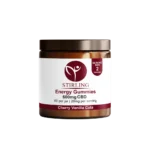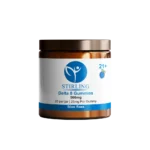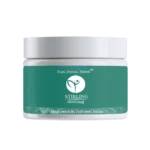CBD and Cannabis Laws in Kentucky
Are CBD and cannabis legal in Kentucky? Everything you need to know about buying CBD and cannabis in Kentucky!
What is the current legal status of CBD in Kentucky, and what should you know before you buy any high-quality CBD products in Kentucky?
To help make buying CBD online in Kentucky a little easier, we’re going to take a closer look at the current Kentucky CBD laws and what you need to know before buying any CBD products in Kentucky.
What are the Kentucky CBD Laws?
CBD oil in Kentucky is 100% legal and available for purchase both through online stores and physical stores. Kentucky has a long history of growing industrial hemp plants which began in 1775, exploded again during World War II, and is thriving once again.
However, not just anyone can start growing industrial hemp plants in Kentucky. The Kentucky Department of Agriculture is responsible for issuing licenses for growing hemp in the state of Kentucky.According to state and federal regulations, CBD products are 100% legal in Kentucky as long as they contain less than 0.3% THC.
How to Purchase Premium Kentucky CBD Products
Many new companies are entering the CBD market with new products hitting the shelves and online marketplaces every day, which is why it’s so important to ensure that you’re buying CBD products from reputable companies as Stirling CBD.
Look for companies such as Stirling CBD that stand behind the quality of their CBD products with independent 3rd party laboratory testing and transparent return and manufacturing policies. Always buy CBD products in Kentucky that clearly display how much of the active ingredient (cannabidiol) is present in the product.
Stirling CBD stocks a huge variety of premium, high-quality CBD products, all of which are available online in Kentucky – all with fast delivery. The versatility of CBD makes it ideal for various delivery methods, including CBD oils, CBD tinctures, CBD Capsules, CBD edibles, and CBD balms.
While initial studies and anecdotal evidence from CBD users worldwide look extremely promising, more clinical trials are needed before we can make any definitive medical claims about CBD. No two people or their conditions are alike, and what works for one person may not work for another.
Kentucky CBD Laws – Is CBD Legal?
Kentucky reinstated hemp as one of its primary crops soon after the 2014 US Farm Bill. Following the 2018 US Farm Bill, Kentucky quickly moved to fall in line with federal regulations defining hemp as any cannabis plant with below 0.3 THC and above 0.3% as marijuana. Hemp-derived CBD products are legal in Kentucky according to 40 KRS 218A.010(27).
Even though the 2018 Farm Bill removed hemp from the controlled substance list, no one can grow, handle (possess), or process hemp plants, viable seed, leaf, or floral materials without a hemp license which the Kentucky Department of Agriculture has issued. As clearly stated in KRS 260.858(3), “It is unlawful for a person who does not hold a license issued by the department, or who is not an agent of a licensee, to cultivate, handle, process, or market living hemp plants or viable seeds, leaf materials, or floral materials derived from hemp.”
United States and Kentucky Weed Laws
In 2018 the United States Congress passed the Agricultural Improvement Act, which is otherwise known as the Farm Bill, making it legal at a federal level to cultivate hemp and produce products from hemp.
Importantly, at the same time, they also made a critical definition as to the difference between hemp and marijuana plants, defining hemp as any cannabis plant which contained less than 0.3% tetrahydrocannabinol (THC).
Even though hemp plants may now be legal to grow and possess at a federal level, it’s up to any individual state, including Kentucky, to introduce state legislation that governs the cultivation, processing, handling, and selling of hemp plants and hemp flower in their states.
What is CBD (cannabidiol)?
Over one hundred different cannabinoids are found in the cannabis plant, and the two dominant cannabinoids are cannabidiol (CBD) and tetrahydrocannabinol (THC).
Almost all CBD products sold online or in-store are made using CBD that was sourced from industrial hemp plants because hemp is naturally high in CBD and low in THC.
Unlike THC, CBD is non-psychotropic. What does that mean? It means that CBD isn’t going to give you that ‘euphoric high’ that products high in THC would. In most states in the U.S., CBD products are 100% legal as long as they contain less than 0.3%.
Growing anecdotal evidence from people worldwide would suggest that CBD could potentially help them reduce swelling, pain, and stress.
Studies suggest that CBD is a powerful natural swelling and redness reducer, and many people are incorporating CBD into their daily health and wellness routines. However, we still require more clinical trials before making any specific medical claims about CBD.
What would make CBD Illegal in Kentucky?
Like many states in the U.S., if CBD products contain more than 0.3% THC, they would be illegal in Kentucky.
CBD oils and other CBD products that utilize CBD sourced from marijuana plants could have higher than 0.3% THC above the federally mandated regulations.
The 1970 Federal Controlled Substances Act categorized all types of cannabis, which includes hemp, as Schedule I narcotics. The 2014 US Farm Bill changed when they recognized a distinct difference between the marijuana and hemp plants.
To help make a clear definition between the two plants, they defined hemp as containing less than 0.3% THC and marijuana as containing more than 0.3% THC.
Best Kentucky CBD Products
You have a lot of options when it comes to buying CBD products in Kentucky, with many major retailers beginning to stock CBD balms and lotions on their shelves in the state and local health and wellness stores and online retailers.
One of the best ways to purchase premium CBD products in Kentucky is still to go online. A variety of different retailers sell high-quality CBD oils online and ship them via the USPS.
Recently, the United States Postal Service (USPS) updated its policy concerning shipping hemp and CBD products, making it legal to ship CBD products throughout the United States.
According to the USPS regulations, any company wishing to ship hemp and CBD products must be licensed by their state.
Like states selling CBD products, all CBD and hemp products must comply with federal regulations, which state hemp and CBD products cannot contain more than 0.3% THC.
References
- https://explorekyhistory.ky.gov/items/show/108#:~:text=Hemp%20has%20a%20long%20history,a%20resource%20for%20textile%20production
- https://www.kyagr.com/marketing/hemp-pilot.html
- https://stirlingcbdoil.com/
- https://www.usda.gov/farmbill
- https://apps.legislature.ky.gov/law/statutes/statute.aspx?id=46889
- https://www.dea.gov/controlled-substances-act
- https://stirlingcbdoil.com/faq-items/what-is-cbd/
- https://about.usps.com/postal-bulletin/2019/pb22521/html/updt_002.html

























